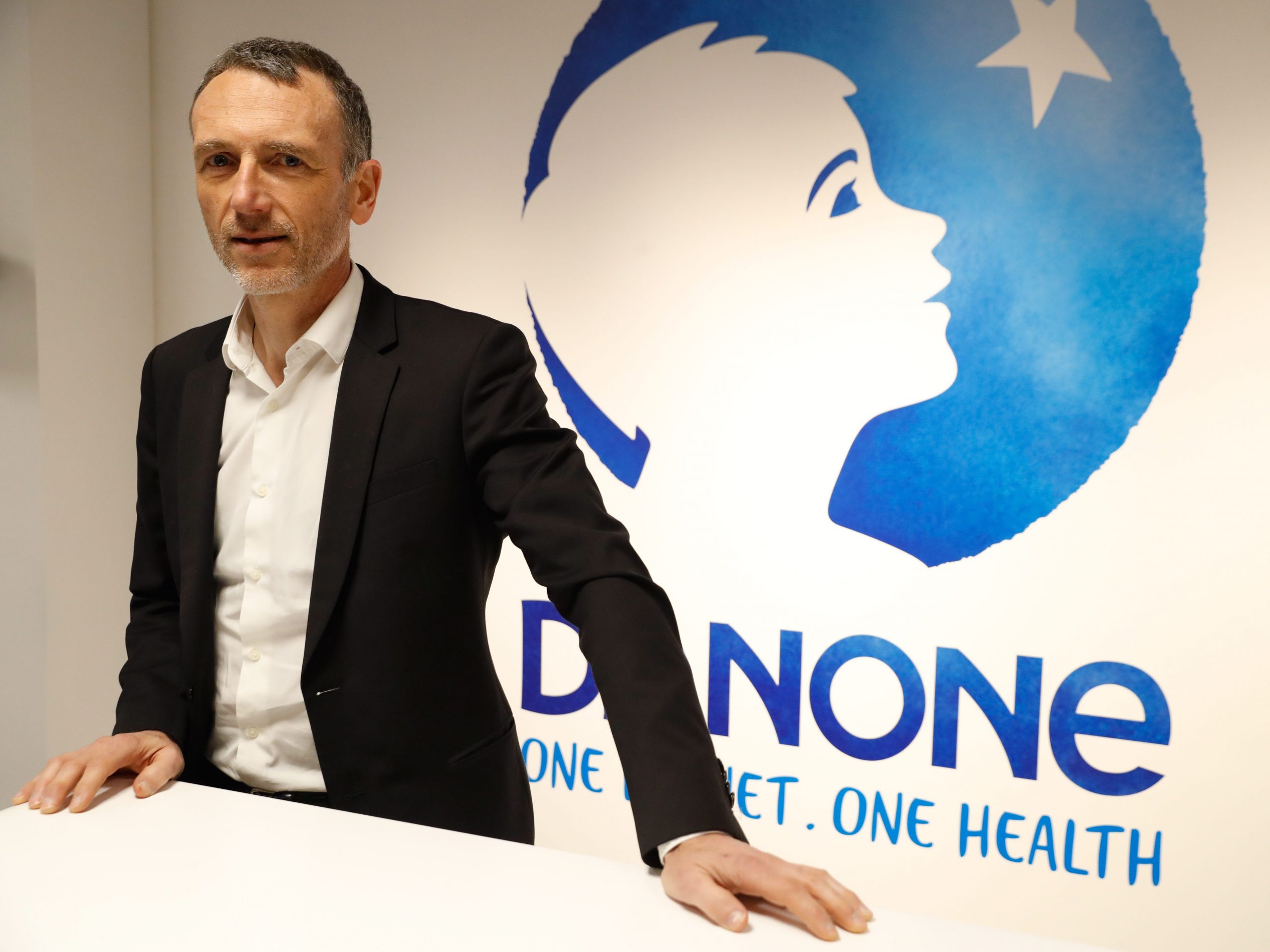
Patrick Kovarik/AFP via Getty Images
- French food producer Danone will cut up to 2,000 jobs, including one in four at its global headquarters in Paris, it announced Monday.
- This forms part of the company’s plans to cut costs by around 1 billion euros ($1.2 billion) per year by 2023.
- Danone’s sales have dropped during the pandemic, but it expects a rising focus on health and plant-based diets to help cushion the blow.
- Danone is the world’s largest yogurt maker, and owns Alpro, Actimel, and So Delicious.
- Visit Business Insider’s homepage for more stories.
Danone, the world’s largest yogurt maker, is cutting up to 2,000 jobs as part of a major cost-saving restructuring, the Paris-based food producer announced Monday.
The company, which owns Alpro, Actimel, and So Delicious, among other brands, plans to reach 1 billion euros ($1.2 billion) in annual cost savings by 2023, it said.
Danone plans to achieve this by reducing its overhead costs by 20%, or around 700 million euros ($833 million), alongside saving 300 million euros ($357 million) by procuring goods more efficiently.
Danone, which has around 100,000 staff globally, will dismiss between 1,500 and 2,000 office staff, including up to one in four workers at its global headquarters in Paris, which it is considering relocating to a new site in the city, it said.
The company has struggled during the pandemic. Its sales in the third quarter fell 9.3% year-on-year to 5.82 billion euros ($6.92 billion).
Sales of its bottled water sank by almost 20% as cafes and restaurants closed and people spent less time on-the-go during lockdown. Retailers are also stocking fewer ranges, and the expected dip in birth rates will mean less demand for Danone's baby formula products in the future, its CEO Emmanuel Faber said.
The company has also incurred additional costs related to new hygiene practices during the pandemic.
"We definitely need to reinvent ourselves, as a company, very much like all of us are doing it in our own ways of living, working or consuming," Faber said.
Danone's new strategy centers on the idea of food being local. As part of its new "Local First" strategy, local business units will "regain autonomy," Faber said, which will also shorten the decision-making process. They will additionally be given more opportunities to feed into the global management of the company.
Because of its restructuring and new strategy, Danone said it expects to return to profitable growth as early as the first half of 2021, and it expects its recurring operating margin to return to its pre-COVID levels of more than 15% by 2022.
Some of the trends brought by the pandemic have benefitted the business, Faber added. These include people increasingly focusing on the link between health and food and the rise of plant-based diets.
